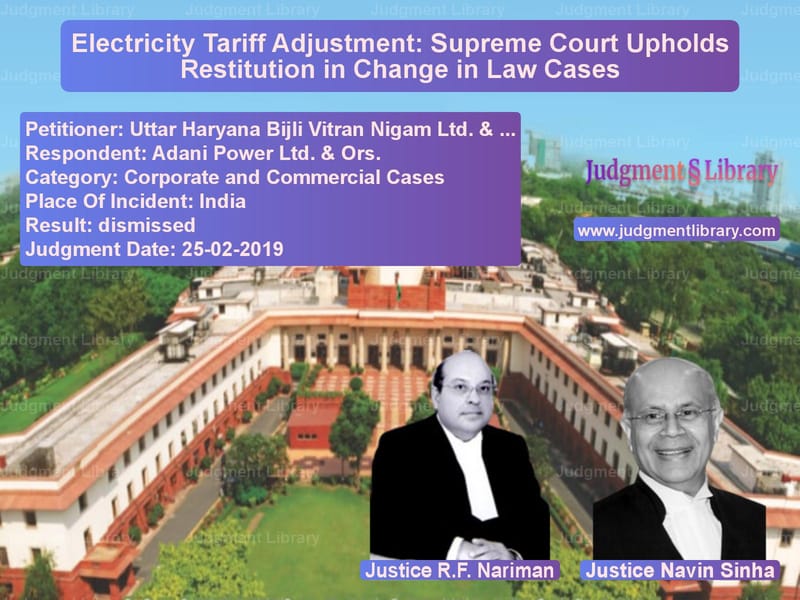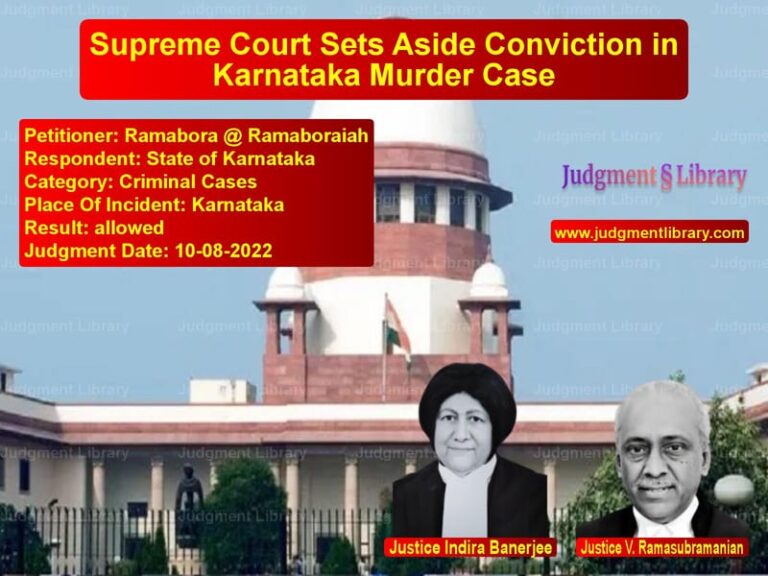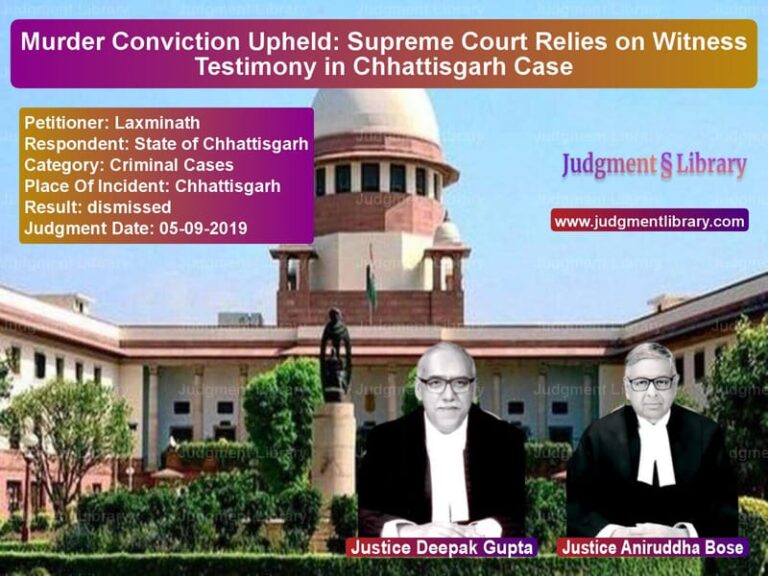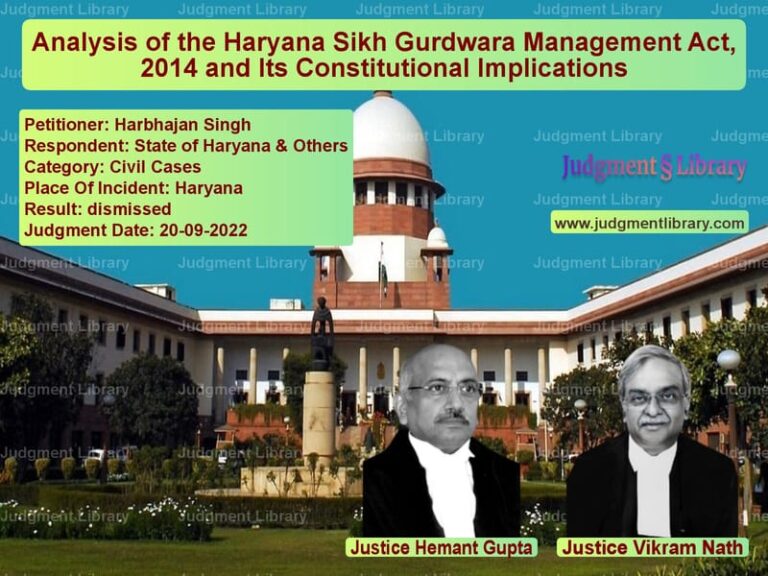Electricity Tariff Adjustment: Supreme Court Upholds Restitution in Change in Law Cases
The case of Uttar Haryana Bijli Vitran Nigam Ltd. & Anr. vs. Adani Power Ltd. & Ors. is a landmark judgment in the energy sector that deals with the interpretation of power purchase agreements (PPAs) and the application of restitutionary principles under the ‘Change in Law’ provision. The Supreme Court of India examined whether a generating company, Adani Power Ltd., was entitled to compensation for additional costs incurred due to changes in tax exemptions and duties that affected its operational expenses.
The key question before the Court was whether the principle of restitution under Article 13 of the PPA mandated the payment of ‘carrying cost’—interest on delayed payments due to the time taken for regulatory approvals. The Supreme Court upheld the decision of the Appellate Tribunal for Electricity (APTEL), affirming that restitution required placing the affected party in the same economic position as if the change in law had not occurred.
Background of the Case
Adani Power Ltd. operates a 4620 MW coal-fired power plant in Mundra, Gujarat. It entered into PPAs with the appellants, Uttar Haryana Bijli Vitran Nigam Ltd. and Gujarat Urja Vikas Nigam Ltd. (GUVNL), to supply power. These agreements included a ‘Change in Law’ clause, allowing for tariff adjustments if government policies altered the financial viability of the contracts.
In 2015 and 2016, the Government of India withdrew tax exemptions and benefits that Adani Power had previously enjoyed under the Special Economic Zones (SEZ) framework. As a result, Adani Power sought compensation under the ‘Change in Law’ clause of the PPAs by filing a petition before the Central Electricity Regulatory Commission (CERC).
Petitioner’s Arguments
The Haryana Discoms and GUVNL contended:
- The PPAs did not explicitly provide for carrying costs, and awarding them would amount to rewriting contractual terms.
- Equity-based restitution should not override explicit contract provisions.
- Granting carrying costs would set a precedent affecting numerous contracts, leading to financial uncertainty.
- Regulatory bodies had no jurisdiction to grant interest when the contract itself did not stipulate it.
Respondent’s Arguments
Adani Power Ltd. countered:
- Article 13.2 of the PPA established a restitutionary principle, requiring adjustments to restore the company to its original financial position.
- The withdrawal of tax exemptions constituted a ‘Change in Law,’ entitling them to tariff adjustments.
- Compensation for additional costs incurred due to regulatory delays should be included under the principle of economic restitution.
- Failure to grant carrying costs would violate the objective of contractual restitution.
Supreme Court’s Observations
The Supreme Court analyzed the provisions of the PPAs and regulatory framework, making key observations:
“Article 13.2 is an in-built restitutionary principle which compensates the party affected by such Change in Law and which must restore, through monthly tariff payments, the affected party to the same economic position as if such Change in Law had not occurred.”
The Court further stated:
“This would mean that by this clause a fiction is created, and the party has to be put in the same economic position as if such Change in Law had not occurred, i.e., the party must be given the benefit of restitution as understood in civil law.”
Final Judgment
The Supreme Court ruled:
- The ‘Change in Law’ provision in the PPA required full economic restitution, including carrying costs.
- Tariff adjustments should be made from the date of the change in law, not the date of regulatory approval.
- Carrying costs were an inherent part of restitution, as delays in regulatory approvals should not financially disadvantage the affected party.
- The appeals filed by Haryana Discoms and GUVNL were dismissed.
Conclusion
This judgment reinforces the principle that contractual terms must be interpreted in light of their overarching economic objectives. The Supreme Court’s decision ensures that power generators are adequately compensated for policy changes affecting their financial viability, thereby maintaining investor confidence in the energy sector.
Petitioner Name: Uttar Haryana Bijli Vitran Nigam Ltd. & Anr..Respondent Name: Adani Power Ltd. & Ors..Judgment By: Justice R.F. Nariman, Justice Navin Sinha.Place Of Incident: India.Judgment Date: 25-02-2019.
Don’t miss out on the full details! Download the complete judgment in PDF format below and gain valuable insights instantly!
Download Judgment: Uttar Haryana Bijli vs Adani Power Ltd. & O Supreme Court of India Judgment Dated 25-02-2019.pdf
Direct Downlaod Judgment: Direct downlaod this Judgment
See all petitions in Company Law
See all petitions in Corporate Compliance
See all petitions in Judgment by Rohinton Fali Nariman
See all petitions in Judgment by Navin Sinha
See all petitions in dismissed
See all petitions in supreme court of India judgments February 2019
See all petitions in 2019 judgments
See all posts in Corporate and Commercial Cases Category
See all allowed petitions in Corporate and Commercial Cases Category
See all Dismissed petitions in Corporate and Commercial Cases Category
See all partially allowed petitions in Corporate and Commercial Cases Category







